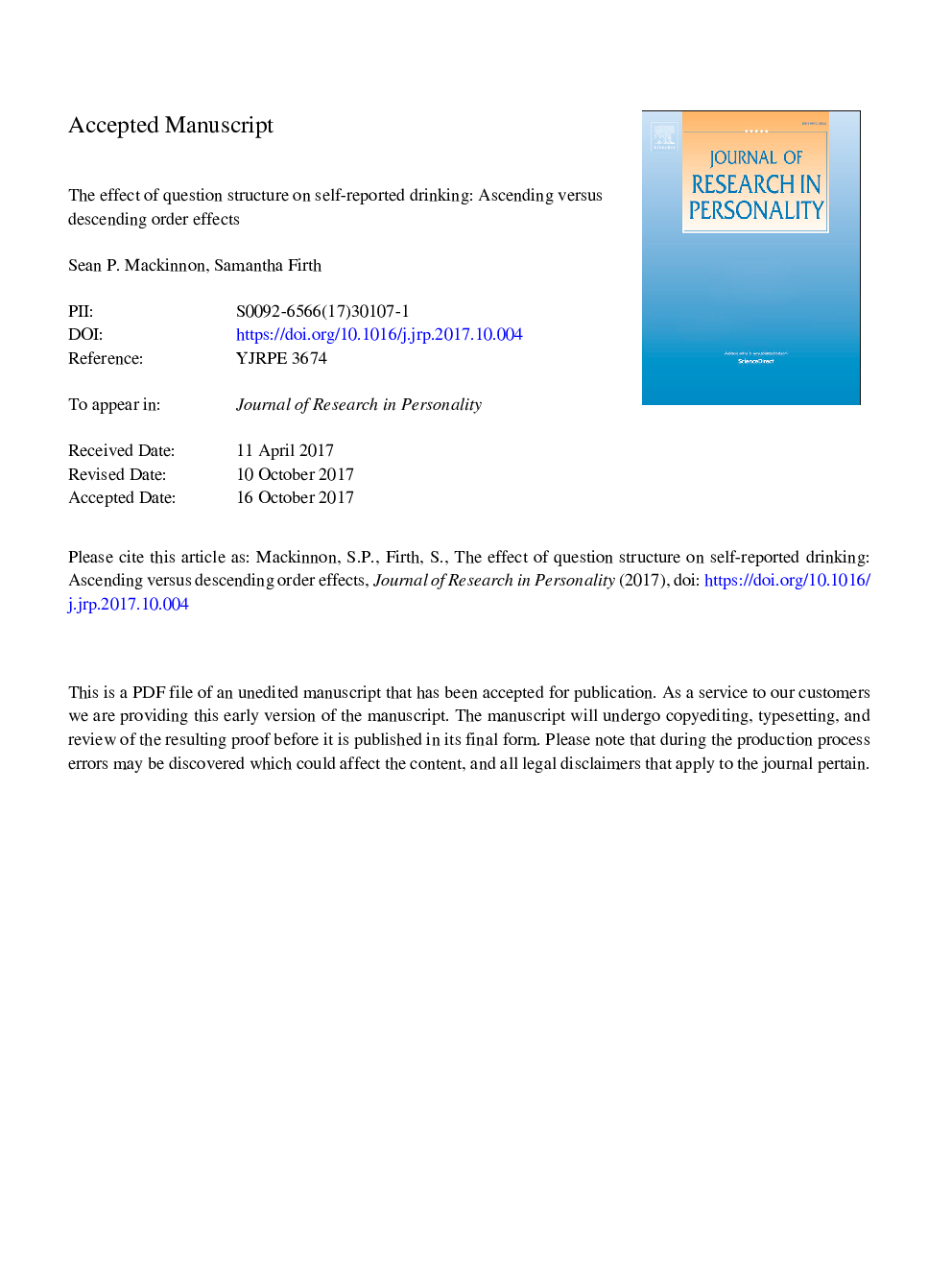| Article ID | Journal | Published Year | Pages | File Type |
|---|---|---|---|---|
| 7326437 | Journal of Research in Personality | 2018 | 25 Pages |
Abstract
Response-order effects refer to differences in participant responding based on the order of questionnaire response options. Theory predicts primacy effects (options presented earlier are more frequently endorsed). We predicted primacy effects for unipolar scales related to alcohol. Undergraduates (Nâ¯=â¯791) completed questionnaires on drinking motives, personality, and alcohol problems. Participants were randomly assigned to ascending (lowest-to-highest) or descending (highest-to-lowest) response-order conditions. Pre-registered analyses found primacy effects for sensation-seeking and enhancement motives. There was no moderation by sex, ethnicity, or age. Experimental condition had no impact on concurrent validity. Exploratory analyses found that undergraduates selected “Strongly Agree” more often in the descending condition and primacy effects for alcohol problems. Overall, we found evidence for small primacy effects in undergraduate students.
Related Topics
Life Sciences
Neuroscience
Behavioral Neuroscience
Authors
Sean P. Mackinnon, Samantha Firth,
